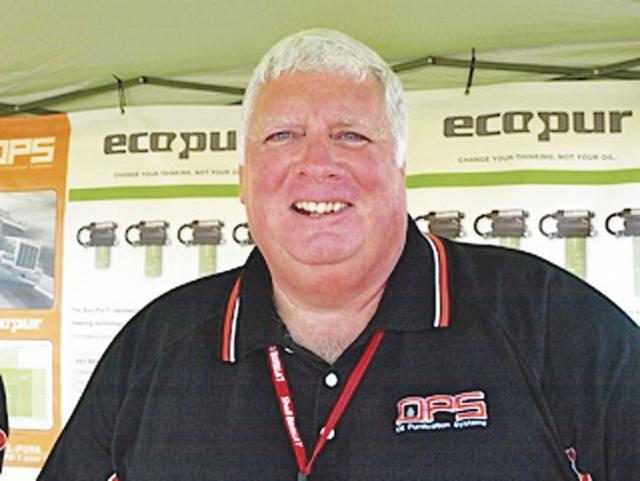Understanding Oil Contaminants

I received a few questions relating to water, acid formation prevention and what effects the acid has on motor oil, along with a few misconceptions of the how bypass filtration and water removal. All of these are related as they all have major effects on the TBN (Total Base Number) formulated in oil to prevent the acid formation.
How does the acid form in oil? Acid is the combination of water (H20) and sulfur, nitrogen, or carbon that are found in oil, diesel fuel or soot, combined with heat from normal engine operation. The water comes from condensation of the air used for ignition of fuel.
What affect does water have on oil? Water is the number one contaminant in oil, which is the reason approximately 75% of the additive package in oil is there to counter waters effects. Besides acid formation water will mix with soot and dirt in oil to create sludge. The sludge blocks galley ways and reduces the flow rate etc. The sludge also attaches to parts and hardens to form hard carbon deposits that get trapped between moving parts scratching or scoring them. Water also increases the emulsification of oil reducing the viscosity and in severe cases cause cavitation that increases wear.
Why doesn’t the heat of the engine evaporate the water? While the engine temperatures are sufficient to evaporate the water, the water must be at the surface to evaporate. While the engine is running and oil pumping the water is encapsulated and emulsified and not at the surface. Remember water is heavier than oil and will be at the bottom of the crankcase where the oil is picked up and circulated through the engine. Sure the pickup is a few inches above the bottom of the reservoir but water is circulated with the oil anyway. In addition the engine is a closed environment with only a small blow-by tube to release the evaporation the majority of the oil will condense and drop back down in to the reservoir.
How do you reduce acid formation and prevent engine damage from pitting and deterioration of seals etc.? Oil manufacturers add base elements (calcium, magnesium, boron, phosphate etc.) to oil to neutralize the acid. A comprehensive oil sample will include the TBN to ensure the oil contains sufficient amounts of base materials to neutralize the acid. This is extremely important if you are extending oil drains to protect engine. Keep in mind that the base material depletes over time and is negatively affected by excessive engine heat and needs to be tested periodically.
Do bypass filtration systems help to eliminate the water and reduce acid formation? The simple answer is yes, however not all bypass system are designed to do so. There are bypass filter systems that filter the solid contaminants very well but have very little effect on water. There are numerous systems designed to either evaporate and remove the water from the oil or absorb the water in a cellulose filter element. Both types of systems are effective in reducing the water content and therefore the acid buildup. As I have worked with Oil Purification Systems and am familiar with all the systems on the market I suggest you thoroughly investigate the pros and cons of each system before installing one.
There are TBN enhancers on the market that will add base materials to your oil to help neutralize the acid however eliminating the water of the oil is the best preventative approach to keeping corrosive wear to a minimum. Do the research and make an informed decision.
If you have any questions for this column please send to: [email protected] with subject line Movin' Out Question.
